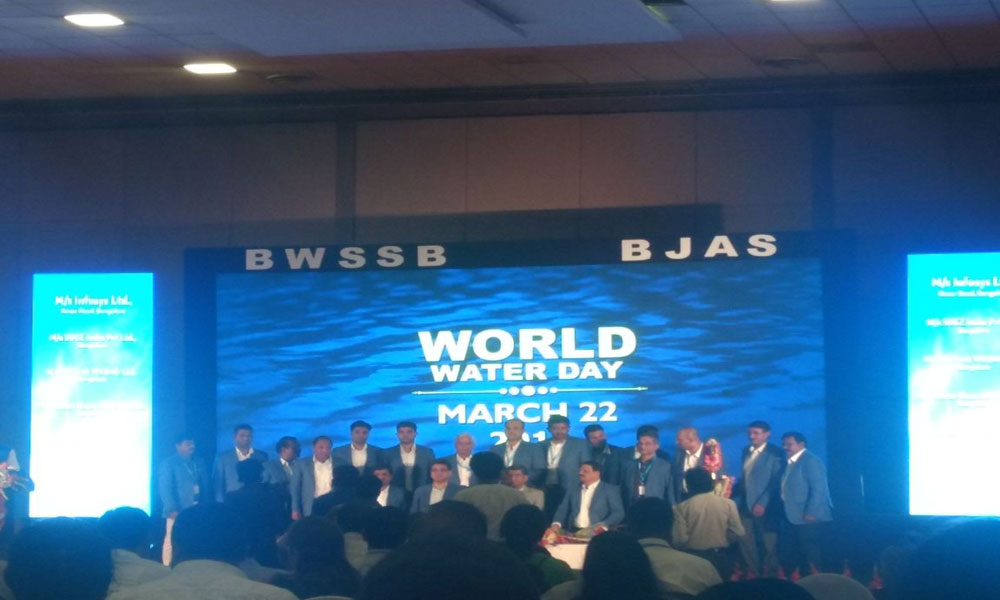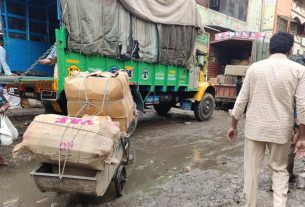BWSSB president may assure that Bangalore will not be the next Cape Town, but several reports beg to differ
Bangalore, March 22, 2018: Bangalore is running dry. The fast paced industrialization backed by the rapidly growing urban populace is quite literally guzzling its water resources at an exponential rate.
Something along the same lines happened in the South African city of Cape Town where a three-year-long drought shows no sign of abating. Although the city has had the dreaded “Day Zero,” shifted from April to July yet the picture continues to be grim for the million strong homes of Cape Town where taps will run dry come July.
The doomsday scenario of “Day Zero” for Bangalore was predicted by a BBC story recently which sadly did not come as a shock to anyone. The report named Bangalore to be the next Cape Town after Sao Paulo, if stringent measures are not taken in time.
Yet on the occasion of World Water Day Tushar Giri Nath, president, Bangalore Water Supply and Sewage Board(BWSSB), stated that Bangalore is not going to turn into the next Cape Town.
The BWSSB and Bangalore Jalamandali Abhiyantarara Sangha have collaborated to launch a campaign ‘The answer is in the Nature’-exploring nature-based solutions to the water challenges the city is facing.
Giri Nath, said, “The campaign we have launched is looking at how we can reduce floods, droughts and water pollution and the only way to do so is using solutions we already find in nature.”
“Focusing on the importance of water we have set the theme for this year’s world water day theme is ‘Nature of water’,” he added.
Another report accused the expanding infrastructure in Bangalore to be the main reason for the exhaustion of the catchment areas of the city’s water resources like the lakes (originally more than 200 in number), groundwater and water from reservoirs and tanks in the Arkavathi river basin — the Hesaraghatta Lake in the north and the Thippagondanahalli Reservoir in the west.
“Bangalore is not as big as other cities, we can’t make comparisons with Kolkata, Ahmedabad or Delhi. Also, they have several water tributaries unlike our city and with the increase in population this is bound to happen,” added Giri Nath while comparing the water situations across various metropolitans.
A recent study by the Indian Institute of Science, Bangalore stated that the city will soon face a huge water crisis.
Prof T V Ramachandra from the Centre of Energy and Wetlands Research Group at the IISc said the city is set to experience water crisis because of improper planning and ineffective implementation of the existing policies.
The senior advisor of Consortium for DEWATS Dissemination (CDD) Society, said, “Urban water management needs a new imagination, a cyclic thinking, as water in nature is cyclic. We will need to close the loop by starting minor water shedding at locality, household and city level.”
Dinesh Poswal, Ph.D. in Environmental Engineering, IIT Mumbai said, “India now has initiatives like Swach Bharath, toilets are being built all over the country, but the point is where is the water being channelized? Is it the water bodies? What kind of development is this?”
According to a study conducted by Force, a Delhi based NGO, citizens of Bangalore receive two times more water than their total standard requirement. The city has a total area of 800 Sq. m and receives an average rainfall of 1049mm which is 839.2 billion litres. If this rain translates to each person in the population of 11 billion then a person per day gets 209 litres and the standard requirement being 137 litres.
Sanjeev Sharma, of Force, said, “Nature doesn’t need us we need nature, it is producing enough water but it is up to us to save it further. Something as basic as Tap leaks can lead to water scarcity.”
He added, “One drop wasted per day is total of 200ltrs per month.”
Speaking about state rivalry for water, Sanjeev Sharma added, “State rivalry for water will have no place if we start saving water at micro level. Rain water harvesting and recharging ground water can save water so that we don’t have to fight with other states.”



